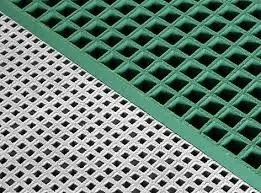
-
 Afrikaans
Afrikaans -
 Albanian
Albanian -
 Amharic
Amharic -
 Arabic
Arabic -
 Armenian
Armenian -
 Azerbaijani
Azerbaijani -
 Basque
Basque -
 Belarusian
Belarusian -
 Bengali
Bengali -
 Bosnian
Bosnian -
 Bulgarian
Bulgarian -
 Catalan
Catalan -
 Cebuano
Cebuano -
 China
China -
 China (Taiwan)
China (Taiwan) -
 Corsican
Corsican -
 Croatian
Croatian -
 Czech
Czech -
 Danish
Danish -
 Dutch
Dutch -
 English
English -
 Esperanto
Esperanto -
 Estonian
Estonian -
 Finnish
Finnish -
 French
French -
 Frisian
Frisian -
 Galician
Galician -
 Georgian
Georgian -
 German
German -
 Greek
Greek -
 Gujarati
Gujarati -
 Haitian Creole
Haitian Creole -
 hausa
hausa -
 hawaiian
hawaiian -
 Hebrew
Hebrew -
 Hindi
Hindi -
 Miao
Miao -
 Hungarian
Hungarian -
 Icelandic
Icelandic -
 igbo
igbo -
 Indonesian
Indonesian -
 irish
irish -
 Italian
Italian -
 Japanese
Japanese -
 Javanese
Javanese -
 Kannada
Kannada -
 kazakh
kazakh -
 Khmer
Khmer -
 Rwandese
Rwandese -
 Korean
Korean -
 Kurdish
Kurdish -
 Kyrgyz
Kyrgyz -
 Lao
Lao -
 Latin
Latin -
 Latvian
Latvian -
 Lithuanian
Lithuanian -
 Luxembourgish
Luxembourgish -
 Macedonian
Macedonian -
 Malgashi
Malgashi -
 Malay
Malay -
 Malayalam
Malayalam -
 Maltese
Maltese -
 Maori
Maori -
 Marathi
Marathi -
 Mongolian
Mongolian -
 Myanmar
Myanmar -
 Nepali
Nepali -
 Norwegian
Norwegian -
 Norwegian
Norwegian -
 Occitan
Occitan -
 Pashto
Pashto -
 Persian
Persian -
 Polish
Polish -
 Portuguese
Portuguese -
 Punjabi
Punjabi -
 Romanian
Romanian -
 Russian
Russian -
 Samoan
Samoan -
 Scottish Gaelic
Scottish Gaelic -
 Serbian
Serbian -
 Sesotho
Sesotho -
 Shona
Shona -
 Sindhi
Sindhi -
 Sinhala
Sinhala -
 Slovak
Slovak -
 Slovenian
Slovenian -
 Somali
Somali -
 Spanish
Spanish -
 Sundanese
Sundanese -
 Swahili
Swahili -
 Swedish
Swedish -
 Tagalog
Tagalog -
 Tajik
Tajik -
 Tamil
Tamil -
 Tatar
Tatar -
 Telugu
Telugu -
 Thai
Thai -
 Turkish
Turkish -
 Turkmen
Turkmen -
 Ukrainian
Ukrainian -
 Urdu
Urdu -
 Uighur
Uighur -
 Uzbek
Uzbek -
 Vietnamese
Vietnamese -
 Welsh
Welsh -
 Bantu
Bantu -
 Yiddish
Yiddish -
 Yoruba
Yoruba -
 Zulu
Zulu
fiberglass chemical product
The Role of Fiberglass in Modern Chemical Products
Fiberglass, a versatile composite material made from fine glass fibers and resin, plays an essential role in various chemical products and industries today. Its unique properties—such as high strength, lightweight, corrosion resistance, and thermal stability—make it an ideal choice for a wide array of applications.
One of the most significant advantages of fiberglass is its strength-to-weight ratio. Unlike traditional materials such as steel or wood, fiberglass provides exceptional durability without adding excessive weight. This is particularly beneficial in the aerospace and automotive industries, where reducing weight contributes to improved fuel efficiency and performance. Manufacturers incorporate fiberglass into components such as body panels, structural elements, and insulation materials, providing robust solutions that withstand environmental stresses.
The Role of Fiberglass in Modern Chemical Products
Thermal stability is yet another property that makes fiberglass a staple in chemical products. With its ability to withstand high temperatures, fiberglass is commonly used in insulation applications. In pharmaceuticals and food processing, for instance, maintaining specific temperature ranges is crucial to ensure product integrity and safety. Fiberglass insulation helps achieve these requirements while minimizing energy costs.
fiberglass chemical product

Moreover, the versatility of fiberglass allows it to be combined with various resins to tailor its properties for specific applications. For instance, using epoxy resins can enhance the material’s chemical resistance, making it suitable for applications involving aggressive chemicals. Similarly, polyesters can provide cost-effective solutions while delivering sufficient performance for less demanding environments.
The construction industry also benefits significantly from fiberglass. In roofing systems, fiberglass-reinforced shingles and panels contribute to lightweight and durable solutions that can withstand weather extremes. Additionally, fiberglass's moisture resistance helps prevent rot and mold growth, safeguarding structural integrity and improving indoor air quality.
The eco-friendly aspects of fiberglass cannot be overlooked. As concerns about sustainability grow, many manufacturers are turning to fiberglass as a substitute for more environmentally harmful materials. Its longevity enhances sustainability, as products made from fiberglass last longer and result in less waste.
In conclusion, fiberglass stands out as a crucial component in the development of modern chemical products across various industries. Its exceptional strength, corrosion resistance, and thermal stability make it an optimal choice for applications that require durability and reliability. As technology advances and environmental considerations become increasingly important, the utilization of fiberglass is likely to expand, leading to innovative and sustainable solutions in chemical manufacturing and beyond. The future looks bright for this remarkable material, which is poised to play an even more significant role in the global economy.









